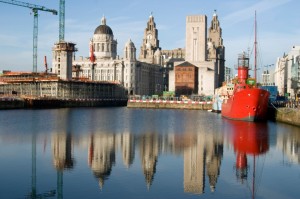Travel a lot for business? Flying in to London for a quick meeting? Read our business travel guide to Heathrow and make the most of your time in and around the airport.
Business Travel Stats
Heathrow Airport serves 28 of the top 29 world destinations based on their GDP ranking and handles nearly 190,000 passengers daily. It is estimated that the airport handles nearly 40 departures per destination weekly and serves 40 percent of all UK business travellers, of which 63 percent are from London.
Since 2009, nearly 1/3 of all passengers going going through Heathrow annually were business travellers. More specifically, the percentage of business travellers in 2009: 33.7% (22.2 million), percentage of business travellers in 2010: 35.3% (23.2 million), percentage of business travellers in 2011: 31% (21.5 million), percentage of business travellers in 2012: 30% (20.7 million) and percentage of business travellers in 2013 remained steady at 30% out of the 72.3 million people that travelled through Heathrow.

Business Services and Incentives
Heathrow is becoming increasingly attractive for passengers as a result of a huge transformation that took place from 2008 to 2011 with the operation of Terminal 5. Additionally, Terminals 1, 2, 3 and 4 have undergone modernisation improvements and remodelling. Especially for business passengers, the new airport facilities include self-service check-in desks, fast bag drops and extra security lanes. The Fast Track priority service is addressed to business passengers, who can save up to 30 minutes walking from the parking area to the airport, check-in area and gate. Regardless of the airline, the Fast Track priority service typically offers dedicated parking, duty free counters and priority check-in and boarding.


 For over two hundred years, Birmingham has played a crucial role in the development of the British economy. Since the early stages of the Industrial Revolution, this West Midlands city has been undergoing constant geographic and demographic expansion. While this has put pressure on the city’s resources, it has also provided numerous opportunities for growth and development. In this article we take a look at how the various regeneration projects that will soon be a reality in Birmingham can help boost even further the local economy and transform the Midlands city into a model for successful urban planning and high standards of living.
For over two hundred years, Birmingham has played a crucial role in the development of the British economy. Since the early stages of the Industrial Revolution, this West Midlands city has been undergoing constant geographic and demographic expansion. While this has put pressure on the city’s resources, it has also provided numerous opportunities for growth and development. In this article we take a look at how the various regeneration projects that will soon be a reality in Birmingham can help boost even further the local economy and transform the Midlands city into a model for successful urban planning and high standards of living. The British economy has always been characterised by being open to a large number of forward-thinking and adaptive initiatives. As a result, the United Kingdom has a dynamic business culture, and this fact has certainly played an important role in the country’s post-recession economic recovery. A growing number of business startups is considered one of the most important characteristics of a healthy economy, so it should not come as a surprise that many governmental schemes are geared towards facilitating the appearance of new business ventures. According to the
The British economy has always been characterised by being open to a large number of forward-thinking and adaptive initiatives. As a result, the United Kingdom has a dynamic business culture, and this fact has certainly played an important role in the country’s post-recession economic recovery. A growing number of business startups is considered one of the most important characteristics of a healthy economy, so it should not come as a surprise that many governmental schemes are geared towards facilitating the appearance of new business ventures. According to the  Prime Office Space has compiled a series of guides to help you with all your Office Requirements needs including
Prime Office Space has compiled a series of guides to help you with all your Office Requirements needs including 
 Prime Office Space has compiled a series of guides to help you with all your Office Requirements needs including Office Planning,
Prime Office Space has compiled a series of guides to help you with all your Office Requirements needs including Office Planning,  The first step for a business start up is to develop a realistic idea, which can turn into a profitable product or service. In the UK, there are four different support groups, for
The first step for a business start up is to develop a realistic idea, which can turn into a profitable product or service. In the UK, there are four different support groups, for  The financial crisis of 2008 uncovered an unstable model of economic growth in the UK, which was based on unsuccessful policies of government borrowing. The UK debt has increased massively, doubling to more than GBP1tn in the period 2008-2013, mainly due to the financial crisis and subsequent recession. The UK government’s main economic goals are economic growth, low inflation, low unemployment and fair distribution of income. To achieve these goals the UK government implements: (1) fiscal policy to control government spending and taxation, (2) monetary policy to control the cost of borrowing and the interest rates and (3) proper legislation to control what businesses can produce and at what cost. All policies aim to encourage consumer spending.
The financial crisis of 2008 uncovered an unstable model of economic growth in the UK, which was based on unsuccessful policies of government borrowing. The UK debt has increased massively, doubling to more than GBP1tn in the period 2008-2013, mainly due to the financial crisis and subsequent recession. The UK government’s main economic goals are economic growth, low inflation, low unemployment and fair distribution of income. To achieve these goals the UK government implements: (1) fiscal policy to control government spending and taxation, (2) monetary policy to control the cost of borrowing and the interest rates and (3) proper legislation to control what businesses can produce and at what cost. All policies aim to encourage consumer spending. This year, the UK’s commercial property market has many reasons to celebrate. Activity has been expanding at its fastest rates since the beginning of the year, and performance ratings hit the 30.7 per cent mark in June. The figures are particularly encouraging for the office market, which has been expanding for 22 consecutive months. Office activity levels across the UK have exceeded the 35 per cent mark for the first time in years. So how exactly is the UK’s office market doing so far and what are the key figures that prospective occupiers should keep in mind? Find all the details in this post.
This year, the UK’s commercial property market has many reasons to celebrate. Activity has been expanding at its fastest rates since the beginning of the year, and performance ratings hit the 30.7 per cent mark in June. The figures are particularly encouraging for the office market, which has been expanding for 22 consecutive months. Office activity levels across the UK have exceeded the 35 per cent mark for the first time in years. So how exactly is the UK’s office market doing so far and what are the key figures that prospective occupiers should keep in mind? Find all the details in this post. According to a recent report published by PricewaterhouseCoopers, the British economy is set to become the world’s fifth largest by 2020. For the time being, the UK economy is certainly on its way to recovery following a long and severe period of recession, and growth indicators are evident across a large number of industries nationwide. But how exactly is the British economy doing during 2014? In this post we take a look at some interesting figures on this matter.
According to a recent report published by PricewaterhouseCoopers, the British economy is set to become the world’s fifth largest by 2020. For the time being, the UK economy is certainly on its way to recovery following a long and severe period of recession, and growth indicators are evident across a large number of industries nationwide. But how exactly is the British economy doing during 2014? In this post we take a look at some interesting figures on this matter.